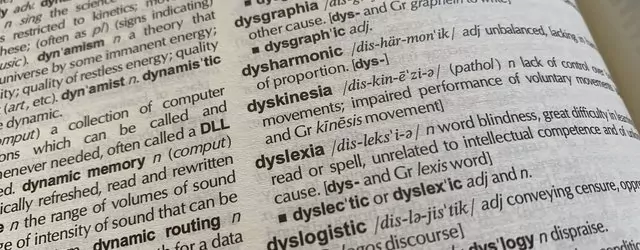The aim of mediation in the workplace is to restore and maintain the working relationship if at all possible.
Mediation is a voluntary and confidential form of alternative dispute resolution. It involves an independent, impartial third party helping two or more individuals or groups to reach a solution that works and is acceptable for everyone.
The focus is therefore on finding a way to work together going forward, not dwelling on what has happened in the past and who is to blame.
Resolutions made by way of mediation are not legally binding and there won’t be a judgment enforced on the parties. The benefit of mediation is that it allows the parties to agree much more creative ways of settling their dispute. Instead of being bound by legal principles and the main remedy in the courts of financial compensation, with the assistance of a mediator, the parties can reach a resolution that they are happy with, which might include an apology, training, a structured payment or renegotiation of a contract.
Furthermore, where a grievance has arisen in the workplace, the use of an impartial third party mediator to try to resolve the issues is recommended in the ACAS Code of Practice, and therefore taking part in mediation can help you to show that you have complied with the Code if you need to in any subsequent claim.
At Banner Jones, we are more than happy to be able to refer our clients to specially trained mediators who are experts at resolving disputes that arise in the workplace.

How will the teacher strikes affect you?
The news this week that teachers from the National Education Union had voted for more strike action in England and Wales will have left lots of working parents – and their employers – wondering how they are going to manage if the employee’s child’s school is closed.

Can a flexible working request be reversed?
For many, the Covid-19 crisis is starting to feel like a distant memory. However, there are still changes to the way we live and work today that were influenced by the restrictions that were put in place. The biggest example in employment law is the shift to working from home.

New redundancy protection legislation
New legislation is expected to complete its course through parliament giving rise to new requirements on employers to offer alternative positions to those subject to redundancy during pregnancy or in the six months after returning to work and businesses must be ready to respond.

Settlement Agreement Advice
Katie Ash explains and answers some questions about settlement agreements.

New legislation on tipping protocols
Hospitality workers must receive all gratuities and service charges without deductions in future.

Dyslexia- What reasonable adjustments should your employer be making?
World Dyslexia Awareness Week 2022 will run from the 3rd to the 9th October. This annual event aims to raise awareness of dyslexia amongst the general public, educational institutions, and employers.

Holiday pay ruling upheld for part year workers
Holiday pay for those who work only part of the year and have no contractually set hours should be calculated on the basis of average earnings, the Supreme Court has confirmed.

What counts as bullying in the workplace?
Experiencing unfair treatment in the workplace can be distressing and can have an impact on your life both in and out of work. You may be worried about your financial situation if you leave, your performance at work, or suffer from low self-esteem. However, there are laws to protect employees from such treatment, but you must first understand what type of negative treatment you are experiencing under the law. In this article, we look at what bullying in the workplace is, and what you can do if you are a victim.

Employment Law: Age Discrimination in the Workplace
Age discrimination claims to employment tribunals have risen steeply since the pandemic, and a recent case has highlighted the challenge for employers using a mandatory retirement age.

Restrictive Covenants
At Banner Jones Solicitors, we can help with all aspects of employment law. In this video, we will discuss restrictive covenants and how they can impact you. For more information, watch our video.

Brexit: supporting your European employees in the UK & British employees abroad
As the UK prepares for the end of the Brexit transition, new laws will be coming into place from 1st January 2021 which will affect businesses, as well as the people who work in them. But what are the expectations on you as an employer?

Health & Wellbeing in The Workplace

Uber drivers entitled to workplace protections
The ‘gig’ economy is characterised by the prevalence of short-term contracts or freelance work, as opposed to permanent jobs. Depending upon your viewpoint, it is either a positive working environment that offers a great deal of flexibility (for example, employment hours in the control of the individual) or it is a form of worker exploitation with very little protection (for example, lack of paid holidays, sickness benefit and so on).

To employ or not to employ?

GDPR – TIPS FOR EMPLOYEES
Complying with GDPR is the responsibility of every employee so we’ve written some tips on how you can help your business stay compliant.
The Gig Economy

The General Data Protection Regulations
What do you need to know? The General Data Protection Regulations (‘GDPR’) come in to force on the 25th May 2018 and whilst the Regulations are new, the principles and requirements are not. The GDPR is an overhaul of the Data Protection Act 1998 (‘DPA’), and extends to the processing of personal data of all data subjects in the whole of the EU. Brexit will not prevent businesses from needing to comply with the Regulations. In practice for those businesses that have already been complying fully with the DPA, they should not need to undertake much work to ensure that they are compliant with the GDPR, and will at the very least have the basics in place.

Notification of email checks required
A recent ruling by the European Court of Human Rights has provided further specific clarification of companies’ responsibilities in respect of their employee email policies. Katie Ash, Head of Employment Law said, “The ECHR ruling in case of Bogdan Bărbulescu could shape extent to which firms can monitor employees’ private communications”. In essence, the court ruling says that not only must a company policy inform employees that they reserve the right to monitor employee emails, but they must also let employees know when they are doing so.

The impact of Brexit on the UK’s Employment Law
As the Nation waits with baited breath to discover what the Government’s strategy for leaving the EU will be, when it will happen and whether it will be a ‘hard’ or ‘soft’ Brexit, many employers are, unsurprisingly, concerned about what the future of employment law will look like. How quickly will it change, what will their obligations be, and what steps will they need to take to ensure compliance?

Employees negligence can amount to gross misconduct
The Court of Appeal recently ruled that a senior manager’s negligence in failing to ensure that a colleague followed company policy could amount to gross misconduct justifying the manager’s summary dismissal.

Do employers care about their employees financial well-being?
A recent study has found that only one in three employees believes their employer cares about their financial wellness.

Which benefits do employees value the most?
We’re living in a world where employee benefits are perhaps more varied than ever before.

Unfair Dismissal Guide
A guide for employees with essential information on employment rights, capability, conduct, gross misconduct, redundancy, illegality and automatic unfair dismissals.

Online Privacy in the Office
Companies are within their rights to monitor the private online activities of their employees when they are in the office.



